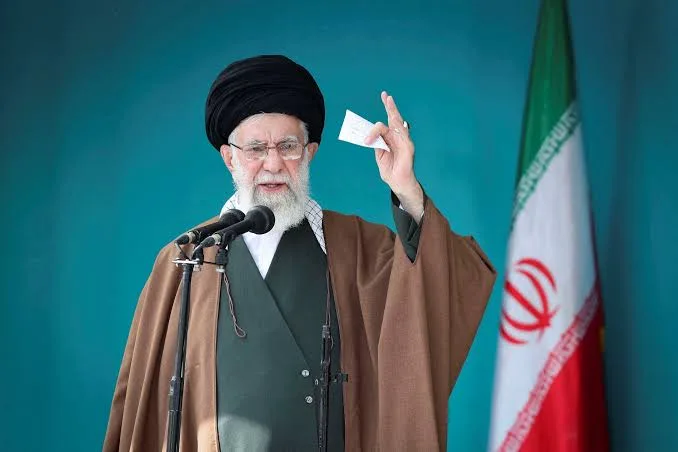
Iran’s Supreme Leader, Ayatollah Ali Khamenei, cautioned Hezbollah leader Hassan Nasrallah to flee Lebanon just days before Nasrallah was killed in an Israeli airstrike, according to three Iranian sources speaking to Reuters. Khamenei is now deeply concerned about potential Israeli infiltration within senior ranks of Tehran’s government.
After the September 17 attack on Hezbollah’s booby-trapped pagers, Khamenei urgently sent an envoy to deliver a message to Nasrallah, urging him to escape to Iran. The warning was based on intelligence reports that indicated Israeli agents had infiltrated Hezbollah and were plotting to assassinate its leader, according to one senior Iranian official. This official shared that the envoy was Brigadier General Abbas Nilforoushan, a high-ranking commander in Iran’s Revolutionary Guards, who was present with Nasrallah when Israeli bombs struck. Both men were killed in the strike.
Following the attack, Khamenei ordered a missile strike against Israel on Tuesday, launching about 200 missiles in retaliation for the deaths of Nasrallah and Nilforoushan, according to Iranian officials. A statement from the Revolutionary Guards confirmed this was also in response to the July killing of Hamas leader Ismail Haniyeh in Tehran, as well as Israeli strikes on Lebanon. Israel has not publicly taken responsibility for Haniyeh’s death.
Meanwhile, Israel launched what it termed a “limited” ground operation in southern Lebanon on Tuesday, targeting Hezbollah positions. Both Iran’s foreign ministry and the office of Israeli Prime Minister Benjamin Netanyahu declined to comment on these developments.
The assassination of Nasrallah follows two weeks of targeted Israeli strikes that have dismantled key Hezbollah infrastructure, eliminating half of the group’s leadership and decimating its military command.
Within Iran and Hezbollah, trust has eroded amid concerns over Israeli infiltration, casting doubts on the strength of the Axis of Resistance—a coalition of anti-Israel armed groups with Hezbollah as its most powerful member since its formation in the 1980s with Iranian backing.
According to four Lebanese sources, Hezbollah is now struggling to appoint a new leader, fearing that Israeli infiltration could place the successor in immediate danger. “Iran has lost its biggest strategic investment in decades,” said Magnus Ranstorp, a Hezbollah expert at the Swedish Defense University, noting the blow to Hezbollah has severely weakened Iran’s ability to exert influence on Israel’s borders.
Ranstorp added that the killings of both Nasrallah and Nilforoushan, a close military adviser to Khamenei, have shaken Iran profoundly. With Hezbollah’s leadership and military capacity in disarray, Iran may shift toward targeting Israeli embassies and personnel abroad, similar to tactics it employed before the rise of its proxy forces.
In a move to prepare for the upcoming Women’s National T20 tournament and series against…
Following Israel-US strikes on Iran this weekend, Pakistan has directed its Air Traffic Control (ATC)…
Kenyon Sadiq's remarkable performance at the NFL Scouting Combine this year has bolstered his prospects…
UN Secretary-General Antonio Guterres highlighted the need for nations to abandon fear-based narratives on migration…
In Bushehr, an attack has rocked Iran's port city, with reports ambiguous about whether damage…
A sudden and provocative strike from Israel this Saturday morning underscored escalating tensions in the…
This website uses cookies.